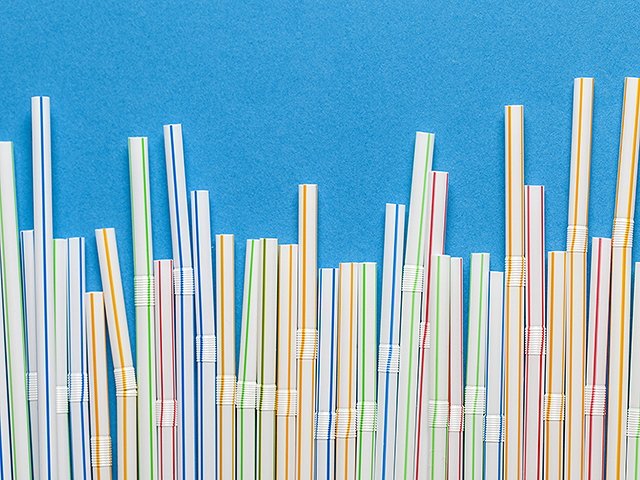A consensus has emerged: Plastic straws are bad. But the reasons why these flimsy cylinders of plastic are suddenly (not) at the tip of everyone’s tongues may not stand up to scrutiny. It’s comforting to see that McGill’s favourite neighbourhood spots are distancing themselves from the recently tabooed straw, but it also raises some questions as to how Montreal is making an impact on the environment. Straws are not the reason species are dying at an exponential rate, nor why the city is experiencing record-breaking heat waves.
Students were quick to offer their support to Montreal’s go-to spots like Suwu, Tokyo, and even Starbucks when they announced that they would no longer be offering plastic straws. After all, straws pose legitimate harm: Reports say that an average of 170–390 million straws are used in the USA every day. Although they are made of plastic, straws cannot be recycled, and, ultimately, many of them end up in the ocean. Consumers quickly turned to Amazon to buy wooden, glass, and stainless-steel straws and their cleaning brushes to prepare for a strawless future. But our motives for jumping on the bandwagon so quickly require reflection. Even as an environment major, I didn’t understand the impacts that straws were having on aquatic systems, climate change, or even the environment as a whole. What are straws doing that cars aren’t? Or that the meat industry isn’t? By boycotting straws, how am I helping?
One of the most significant problems that Montreal’s compost and recycling depots face is ineffective sorting. McGill cafés, including Première Moisson, offer compostable containers and cups, yet our campus lacks an adequate supply of compost bins. When compostable materials end up in the recycling, they pose a risk of contaminating entire batches of recyclable materials, which will then have to be thrown away. McGill must take strides to improve the availability of compost sites on campus to support their students’ recycling and compost efforts.
There are many resources that explain the specifics regarding waste sorting in Montreal. Each city is different—just because you’re used to something at home, doesn’t necessarily mean it’s the same in Montreal. Students should also consider bringing a reusable container and travel mug: The beginning of the semester can take a toll on your eating and caffeine consumption habits, and while it’s not necessarily a bad thing to grab a take-out container and a cup of coffee on campus, single-use waste can add up throughout the semester. Students can take advantage of the resources McGill provides: The Plate Club, Midnight Kitchen, and Reboot McGill can help students reduce their daily waste. The Plate Club, for example, rents out reusable dishware to the university’s clubs and students.
While boycotting straws is a step in the right direction, it certainly is not the last step. The elimination of straws has sparked a discussion about how we, as McGill students, can lessen our impact on the environment in a real and meaningful way. Now, we must take these initiatives a step further.










Is it possible to post a relevant link here?
Wanted to follow up to see if it is okay to post a relevant link here?